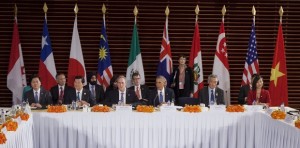The Department of Finance wants to narrow the gap between the interest income taxes paid by the rich and low-income depositors.
Finance Secretary Carlos G. Dominguez III told the House ways and means committee early this week that the DOF was looking “to harmonize all capital income taxes regardless of currency, maturity and type toward 10 percent.”
“This way, the poor will pay less on the interest income and the rich will pay more,” Dominguez said.
“Specifically, we propose to reduce the tax on interest income from peso deposits to 10 percent. Meanwhile, we propose to harmonize all capital income tax rates to 10 percent,” the finance chief added.
This proposal forms part of the tax policy reform program which is composed of four packages, to be pitched by the DOF to legislators this month.
The fourth tax policy package will cut the tax on interest income earned on peso deposit and investment to 10 percent from 20 percent at present. To compensate, the government plans to harmonize capital income tax rates on dollar deposits and investment, dividends, equity and fixed income rates toward 10 percent, while also increasing the tax on stocks traded in the stock market to 1 percent of gross selling price from 0.5 percent at present.
The capital income tax package will nonetheless result in a P1-billion net revenue loss.
In a statement, the DOF quoted Dominguez as saying that “depositors with minimal peso investments are normally taxed as high as 20 percent while rich depositors parking their millions of pesos in banks for much longer get to do it tax-free, depending on how long they keep their money in the banking system.”
“Small depositors are burdened with high tax rates because they save less and cannot keep their money in banks for a long time, while rich depositors, who park their money in banks because they do not have an immediate need for it, are not taxed. Is that fair?” he said.


